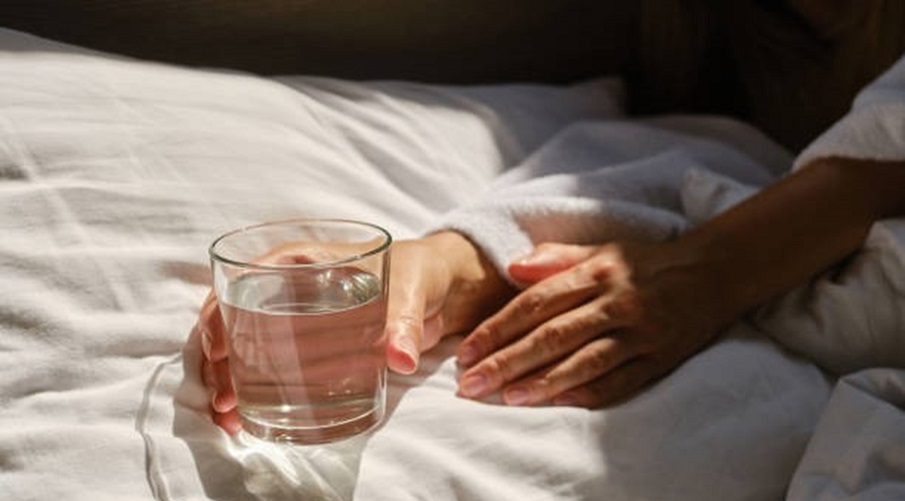Do you struggle with nighttime incontinence, making it difficult to get a good night’s sleep and impacting your overall health and well being?
Many people face this common issue, but there are ways to manage it effectively to improve your quality of life.
Here, we’ll explore 9 great wellness tips for nighttime incontinence to achieve better sleep for better health.
9 Wellness Tips for Better Sleep:

Nighttime incontinence can be a frustrating and embarrassing condition to deal with.
It can disrupt sleep, making you tired and irritable during the day.
However, these strategies and tips can help you better manage nighttime incontinence and achieve more restful sleep for improved health.
1. Consulting a Healthcare Professional
If you have problems with urination at night, see a doctor immediately to find out what’s causing it and get the right treatment.
Your doctor can fully evaluate, including a physical check, urine tests, and imaging studies.
This helps find any underlying health problems that cause nighttime enuresis.
They can make a care plan that fits your needs based on what they find.
But they will probably suggest bed pads for incontinence because they protect your mattress and clothing even more.
Bed pads, also called underpads, soak up water and stop leaks, so your bed stays clean and dry all night.
They come in different sizes and amounts of absorbency to meet different needs, and you can choose to throw them away or use them again.
2. Establishing a Bedtime Routine
Having the same routine every night before bed can help your body know it’s time to relax and get ready for sleep.
Adding relaxing activities like reading, gentle stretching, or meditation to your nightly routine can help you rest and feel less stressed.
So, why not set a regular sleep schedule?
This will help your body’s internal clock stay in sync and improve the quality of your sleep as time passes.
3. Limiting Fluid Intake Before Bed
Limiting the fluid you drink hours before bed is best to lower the risk of crashes at night.
But you should ensure you’re adequately refreshed by drinking water earlier in the day.
If you want to control your nocturnal enuresis better, staying away from caffeine and alcohol in the evening can also help reduce the intensity and frequency of your urination.
4. Using Absorbent Products
As mentioned earlier, absorbent products, like bed pads, help you get through the night.
These products can provide extra protection against accidents, allowing you to sleep well without worrying about leaks or stains.
Also, waterproof bedding can help protect your mattress from damage caused by urine leaks.
You don’t have to think about a messy bed when you wake up.
You can wake up and feel great to start the day!
5. Practicing Pelvic Floor Exercises
Pelvic floor exercises are among the most essential wellness tips for nighttime incontinence.
Strengthening the pelvic floor muscles can control your bladder better and cause fewer accidents at night.
When you do pelvic floor exercises, also called “Kegels,” you tense and rest the muscles that control urination.
You can do these movements without drawing attention to yourself at any time of the day.
They are especially good for people whose pelvic floor muscles are weak from giving birth, getting older, or other causes.
6. Creating a Restful Sleep Environment
One more tip is to make your bedroom a good place to sleep.
To get the best sleep, ensure your bedroom is dark, quiet, and comfortable.
Buy a mattress that is comfy and pillows that support your body well.
Block out the light with blackout shades or an eye mask to sleep better.
Earplugs or white noise machines can also help block out annoying sounds and help you sleep.
7. Practicing Stress Reduction Techniques
Anxiety and stress can worsen nighttime accidents and make sleeping harder.
Stress relieving activities like mindfulness meditation, deep breathing exercises, or progressive muscle relaxation in your daily life can help clear your mind and make you feel more relaxed.
Managing your stress well can help you sleep better and lessen the effects of mental factors on nocturnal enuresis.
8. Monitoring Dietary Triggers
Some foods and drinks can upset the bladder and make problems with nighttime accidents worse.
Pay attention to how your body responds to different foods and drinks, and if they make you go to the bathroom more often or right away, limit or avoid them.
Foods that often set off food allergies include spicy foods, citrus fruits, caffeine, booze, and artificial sweeteners.
You can lower the number and seriousness of accidents at night by changing what you eat and avoiding things that might set them off.
9. Seeking Support
It can be hard on your emotions to deal with nighttime urination, but you’re not alone.
Talk to family, friends, or support groups about your feelings and experiences to get help and know they understand.
If you’re honest about your problems with nighttime leakage, you might feel less alone and get helpful advice and tips from people who have been through the same things.
What You Should Remember?
Taking care of nighttime incontinence requires a complete method that considers physical and emotional factors.
Following the health advice in this article, you can successfully deal with nocturnal enuresis, get better sleep, and improve your well being.
Don’t forget to talk to a medical expert for help and treatment options specific to your needs.
You can regain control of your nighttime incontinence with patience, persistence, and support.
You can also get restful nights of sleep for better health and energy.






